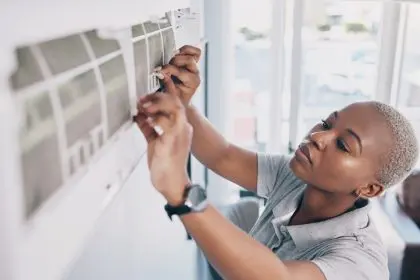Opening your home to strangers, while seemingly hospitable, can introduce significant risks to personal safety and family security. Understanding these dangers helps protect households from potential harm while maintaining peace of mind.
The privacy breach risk
When strangers enter a home, they gain intimate knowledge of personal lives and daily routines. Even brief visits reveal valuable information about security systems, valuables’ locations, and family schedules. This exposure can lead to serious security breaches, as seemingly innocent observations provide crucial details that could enable future criminal activity.
Your home contains countless clues about your life – from family photos showing vacation spots to mail revealing financial institutions you use. Strangers can gather this information subtly, creating vulnerabilities that may not become apparent until much later.
Understanding theft potential
Criminal activity often begins with legitimate access to homes. Would-be thieves use initial visits to assess security weaknesses, valuable items, and household patterns. Many break-ins occur after criminals have previously gained entry through seemingly innocent encounters.
Beyond outright theft, property damage presents another significant concern. Unknown visitors may not show the same respect for belongings as trusted guests, leading to intentional or accidental damage that creates financial burden.
Health safety concerns
In today’s health-conscious world, inviting strangers into homes creates unnecessary exposure risks. Unknown individuals may carry communicable diseases or create unhygienic conditions that endanger family members, particularly those with compromised immune systems, the elderly, or young children.
Healthcare professionals consistently emphasize the importance of controlling exposure to unknown individuals, especially within private spaces where close contact becomes more likely and ventilation may be limited.
Emotional manipulation risks
Some individuals exploit access to homes for manipulation purposes. What begins as seemingly innocent visits can evolve into psychological pressure for favors, financial assistance, or other forms of exploitation. These situations often start subtly but can escalate into significant emotional distress.
Maintaining strong boundaries helps prevent these manipulative relationships from developing. Once someone gains regular access to your home, establishing new boundaries becomes increasingly difficult.
Family security impact
Children and other family members rely on home environments feeling safe and predictable. Unknown visitors can disrupt this sense of security, creating anxiety and discomfort that may persist long after visitors leave. Young family members especially need consistent, protected spaces for healthy development.
The psychological impact of stranger presence can undermine family stability and create lasting anxiety about home safety. Maintaining strict policies about unknown visitors helps preserve the home’s role as a secure sanctuary.
Values and influence concerns
Each household maintains its own standards of behavior and values. Unknown visitors bring unpredictable influences that may conflict with these established norms. This exposure particularly affects impressionable family members who might adopt undesirable behaviors or attitudes.
From inappropriate language to concerning habits, strangers can introduce elements that disrupt carefully maintained family environments. Protecting your home atmosphere ensures consistent values and behavioral standards remain intact.
Legal vulnerability awareness
Property owners face significant liability when inviting strangers into their homes. If accidents or injuries occur on the premises, homeowners may face expensive insurance claims or lawsuits. These legal complications can create lasting financial and emotional strain.
Even seemingly minor incidents can escalate into major legal issues when involving unknown individuals who have no established relationship or trust with the household.
Looking forward
Protecting your home requires consistent attention to visitor access and security measures. Consider implementing these protective strategies:
Establish clear policies about unknown visitors. Install and maintain proper security systems. Build relationships with neighbors for additional oversight. Create and practice emergency response plans. Document any concerning incidents promptly.
Through careful attention to these principles, households can maintain their safety and security while protecting family interests. Remember that your home serves as your sanctuary – maintaining its security should always take precedence over temporary social considerations.
This story was created using AI technology.
















